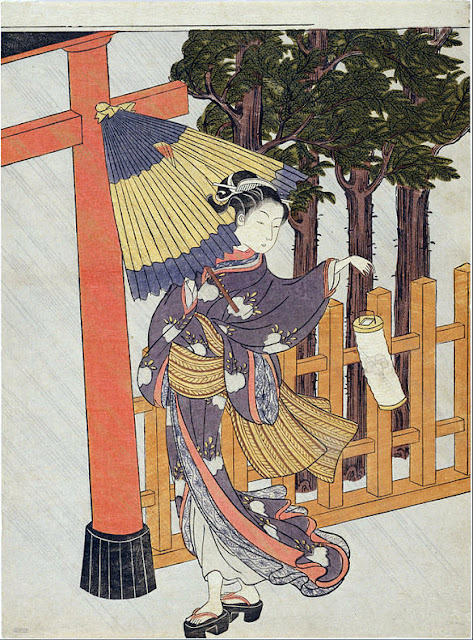 |
| Sharaku: Nakamura Nakazo II as Prince Koretaka... |
This is a typical example of the genius of Tōshūsai Sharaku: Nakamura Nakazo II as Prince Koretaka disguised as the Farmer Tsuchizo in the Play Intercalary Year Praise of a Famous Poem. In a sense, the portrait, which was created in 1795, has three layers. It shows an actor, playing a prince who plays a farmer. And all of them are visible in this face. This ability to catch many individuals in one is what makes Sharaku one of the greatest ukiyo-e masters.





